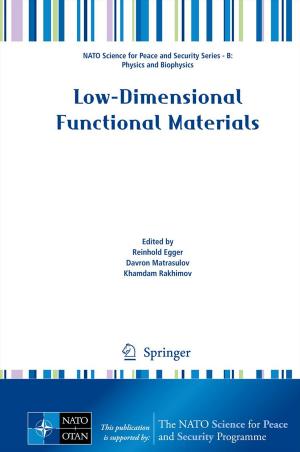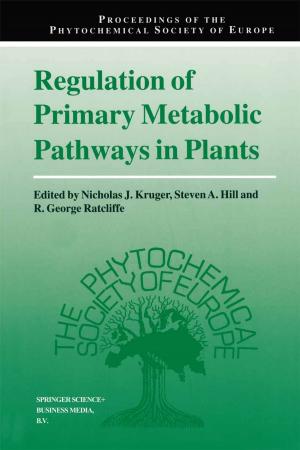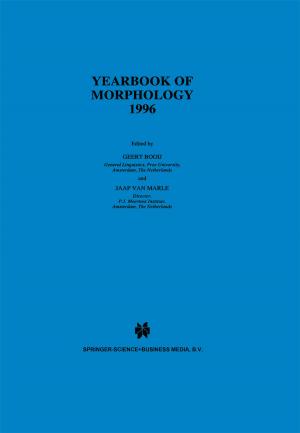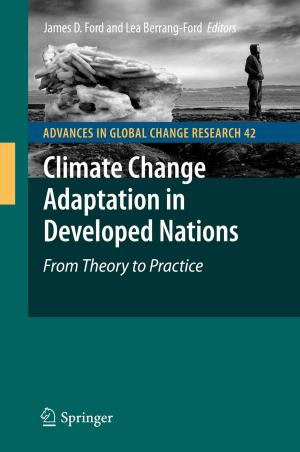Climate Change: Significance for Agriculture and Forestry
Systems Approaches Arising from an IPCC Meeting
Nonfiction, Science & Nature, Technology, Environmental, Science, Other Sciences, Meteorology| Author: | ISBN: | 9789401583282 | |
| Publisher: | Springer Netherlands | Publication: | June 29, 2013 |
| Imprint: | Springer | Language: | English |
| Author: | |
| ISBN: | 9789401583282 |
| Publisher: | Springer Netherlands |
| Publication: | June 29, 2013 |
| Imprint: | Springer |
| Language: | English |
Societies throughout the world depend on food, fiber and forest products. Continuity and security of agricultural and forest production are therefore of paramount importance. Predicted changes in climate could be expected to alter, perhaps significantly, the levels and relative agricultural and forestry production of different nations over the next few decades.
Agriculture and forestry are also likely to influence the rate and magnitude of such change, as they can be both significant sources and sinks of a number of greenhouse gases. Adaptive management strategies therefore need to be formulated and implemented for these sectors, to enable them to both adapt to future environmental change, and to limit greenhouse gas emissions.
This book arose from an international workshop held in Canberra, Australia, under the auspices of the former IPCC Working Group III - Agriculture, Forestry and Other Human Activities Sub-Group (AFOS). A number of leading speakers at the workshop were approached to encapsulate the concepts discussed and developed at this workshop. The resulting papers make up this volume. The book promotes a greater understanding of the major sources and sinks of greenhouse gases within intensive and extensive cropping and animal production systems, and of agroforestry. It highlights the need to adopt a holistic systems approach to monitoring and reducing greenhouse gas emissions and assessing impacts, and to integrate climate change-related goals and activities with other issues, such as biodiversity, desertification, and sustainable agriculture and forestry.
Societies throughout the world depend on food, fiber and forest products. Continuity and security of agricultural and forest production are therefore of paramount importance. Predicted changes in climate could be expected to alter, perhaps significantly, the levels and relative agricultural and forestry production of different nations over the next few decades.
Agriculture and forestry are also likely to influence the rate and magnitude of such change, as they can be both significant sources and sinks of a number of greenhouse gases. Adaptive management strategies therefore need to be formulated and implemented for these sectors, to enable them to both adapt to future environmental change, and to limit greenhouse gas emissions.
This book arose from an international workshop held in Canberra, Australia, under the auspices of the former IPCC Working Group III - Agriculture, Forestry and Other Human Activities Sub-Group (AFOS). A number of leading speakers at the workshop were approached to encapsulate the concepts discussed and developed at this workshop. The resulting papers make up this volume. The book promotes a greater understanding of the major sources and sinks of greenhouse gases within intensive and extensive cropping and animal production systems, and of agroforestry. It highlights the need to adopt a holistic systems approach to monitoring and reducing greenhouse gas emissions and assessing impacts, and to integrate climate change-related goals and activities with other issues, such as biodiversity, desertification, and sustainable agriculture and forestry.















